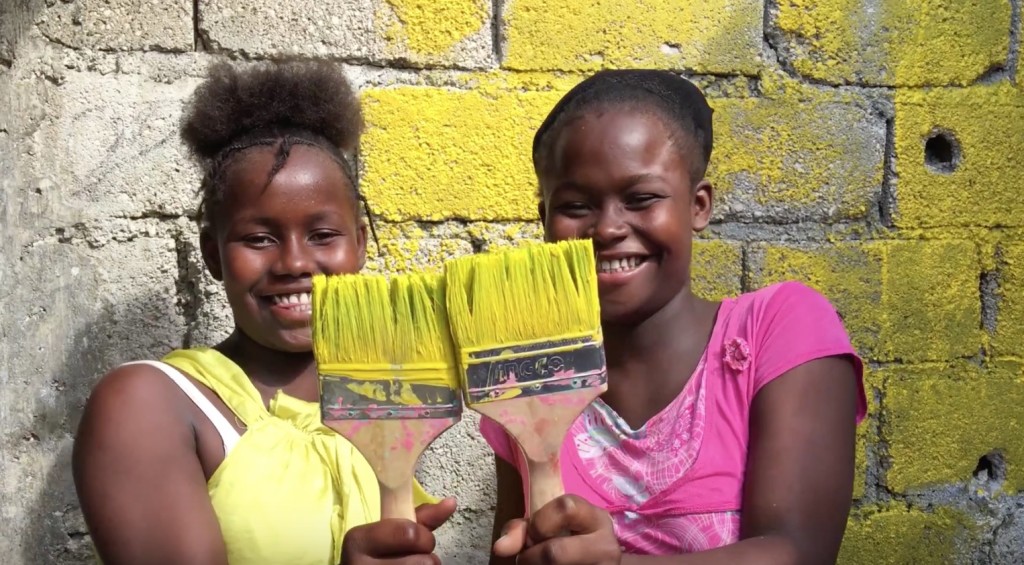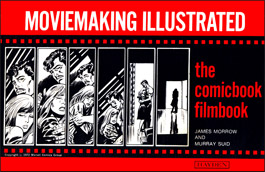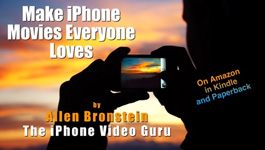In 2009, Susy Botello started the Mobil Film Festival. Located in San Diego, it was one of the earliest fests devoted exclusively to movies shot using mobile devices. Her goal was to show the world you can make a film with the small phone to play on the big screens like any other film shot with any other camera. Now,comes an equally bold step: launching the Mobile Film School.
MMM: Why the Mobile Film School?
Botello: We are creating a new opportunity for people who never had a way into filmmaking before. For the first time in history everyone has a camera in their pocket. Some people debate which phone to use. But it’s not about the brand. It’s about story telling.
MMM: What kind of classes will you offer?
Botello: In addition to a basics course, we’ll have advanced technical classes such as audio capturing. We’ll also offer genre focused classes dealing with mobile reporting, documentaries, narrative movies, and music videos.
MMM: Will you be offering classes in other places besides San Diego?
Botello: Yes, because mobile moviemaking is a worldwide phenomenon. Filmmakers everywhere have the same potential to be great storytellers. So in the near future our filmmaking teachers will give Mobile Film School workshops where they live. We’ll also provide instruction by the Internet, both streaming some classes and airing instructional videos.
MMM: You’ve held your film festival for several years. What made you decide to launch the Mobile Film School at this time?
Botello: We’ve been planning this for a long time. Even before our initial festival we had reached out and partnered with Conrad Mess and with Max Schleser to develop the Mobile Film School concept. Now, with increasing numbers of people wanting to use their phones as professional cameras, the time is right to launch the School.
MMM: Mess and Schleser have made impressive movies. Is being an experienced filmmaker one of the criteria you use to choose instructors for your school.
Botello: Absolutely. Conrad Mess is an exceptional filmmaker with great cinematic style and technique. He is the most awarded iPhone filmmaker in the world today. For us, real-world experience is more important than being a film school graduate. What really matters is knowing how to tell stories through film, and appreciate that you need technical mastery as well as artistic vision. Max Schleser is already an instructor at Massey University in Wellington, New Zealand and has co-authored some in-depth scholarly books and articles regarding the mobile filmmaking phenomenon.
MMM: What do you see as the school’s impact?
Botello: We believe it will improve the quality of films in film festivals all over the world—and not just mobile film festivals. We want the mobile filmmaker to be inspired to make more and better films. And since just about everyone has access to phone cameras, it makes sense to provide a school just as the traditional industry has done. Also with every update the phone manufacturers make, like the most recent with the iPhone 6S and 6S plus, it is a motivator for experienced mobile filmmakers to produce new mobile films using the newest and latest.
MMM: What’s your role in this initiative?
Botello: I have a lot of energy and mobile filmmaking is my passion. I’m good at getting things done through persistence. I have passion for entertaining people through moving images, as well. Bringing all that together, by developing the school, I can help people realize their filmmaking dreams.
MMM: There is a lot of how-to-do-it information available about mobile moviemaking. What is unique about your approach?
Botello: We want to provide an accredited school to the global mobile filmmaking community with a combination of a physical classroom setting, along with the online benefits and the interconnection of our other programs such as, the film festival, MFTV and Community Stories. Our goal is to be an accredited school which will enable people to use their mobile filmmaking credits for college and perhaps also at the high school level if that is something they desire.
MMM: Will the school be just for adults?
Botello: No. We want to teach everyone. So while we will have classes for adults—including business people who need to incorporate filmmaking in their marketing and other activities—we’ll also reach out to public school teachers and students. In fact, we’ve sent proposals to local schools in San Diego and are getting closer to incorporating mobile filmmaking in classrooms with our Kids Teach Kids Tech™ program. We believe that video production can enrich learning throughout the curriculum.
MMM: What do you see as the future of mobile moviemaking?
Botello: Mobile moviemakers who grew up going to the movies and watching cable television still want to get their films in the traditional theaters and in television. It gives them validity as filmmakers and media producers. But increasingly getting your film on iTunes or Roku and Apple TV is an acceptable form of validity for filmmakers. There’s a parallel for writers who previously wanted to have an established publisher bring out their books, but now have the option to publish independently via Amazon and other platforms. Within the next five years you will see more and more filmmakers succeed as independent creators through the magic of social media marketing as opposed to only striving to be backed by the Hollywood industry.
MMM: We’re already seeing this convergence with mobile journalism.
Bostello: That’s right. The TV industry is increasingly using footage shot by citizens on their mobile phone. This trend will continue and accelerate as manufacturers create smartphone camera sensors that compete with professional cameras. In the next few years we’ll shoot 8K on smartphones! Will the average consumer see the difference between conventional cameras and mobile phone cameras? I doubt most will, if you can captivate your audience with good stories told through good filmmaking in general.
MMM: What advice do you have for people who want to use mobile devices to make fiction movies, journalistic reports, music videos, documentaries and other video genres?
Botello: Dare to dream and live your dream. Join the community to get in the middle of it. Allow yourself to be inspired when it comes to mobile filmmaking and this new industry. Not having a big camera or studio backing is no longer an excuse. It is a wonderful time to be a filmmaker using a mobile phone as a camera. The purpose of the Mobile Film School is to encourage everyone to participate, play and help advance this exciting field.



 Previous post
Previous post
 Next post
Next post





